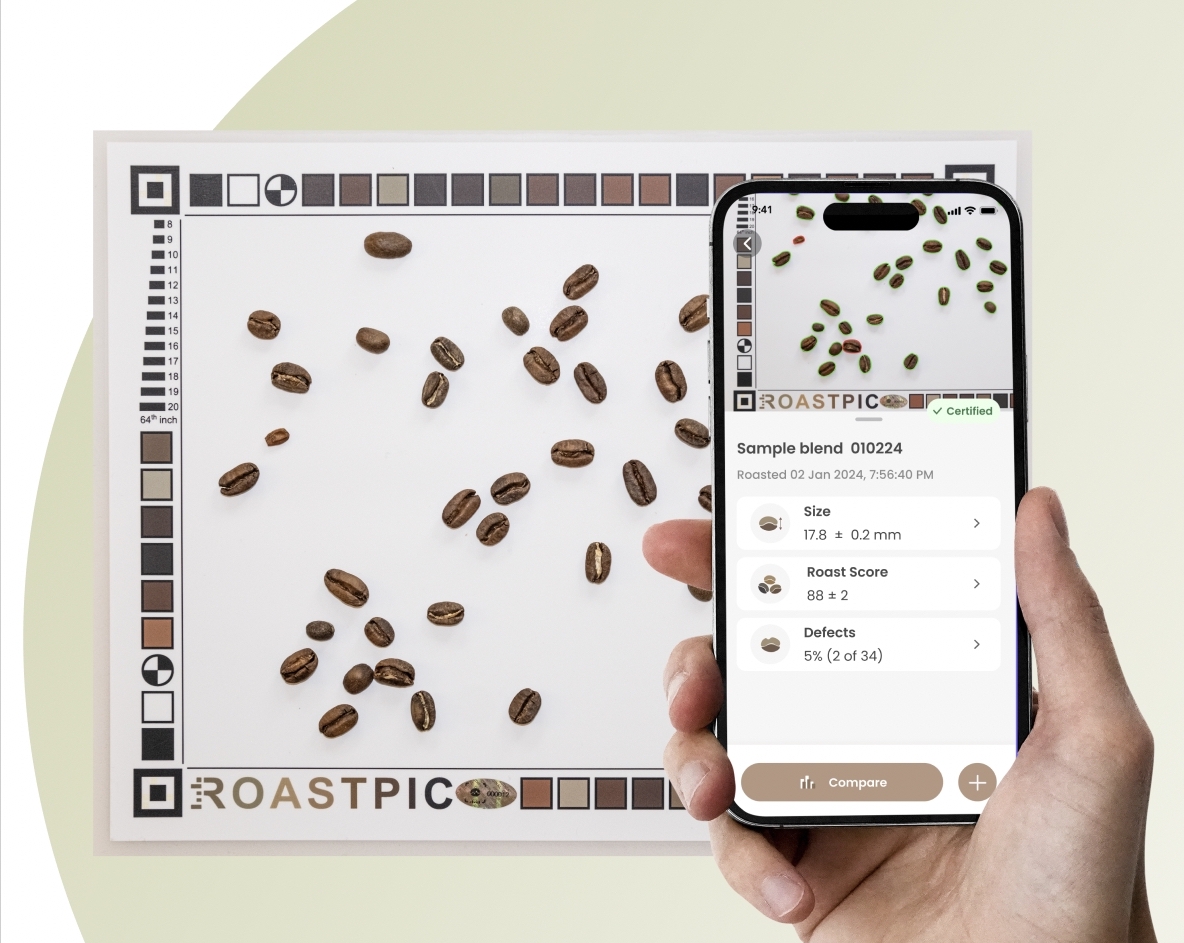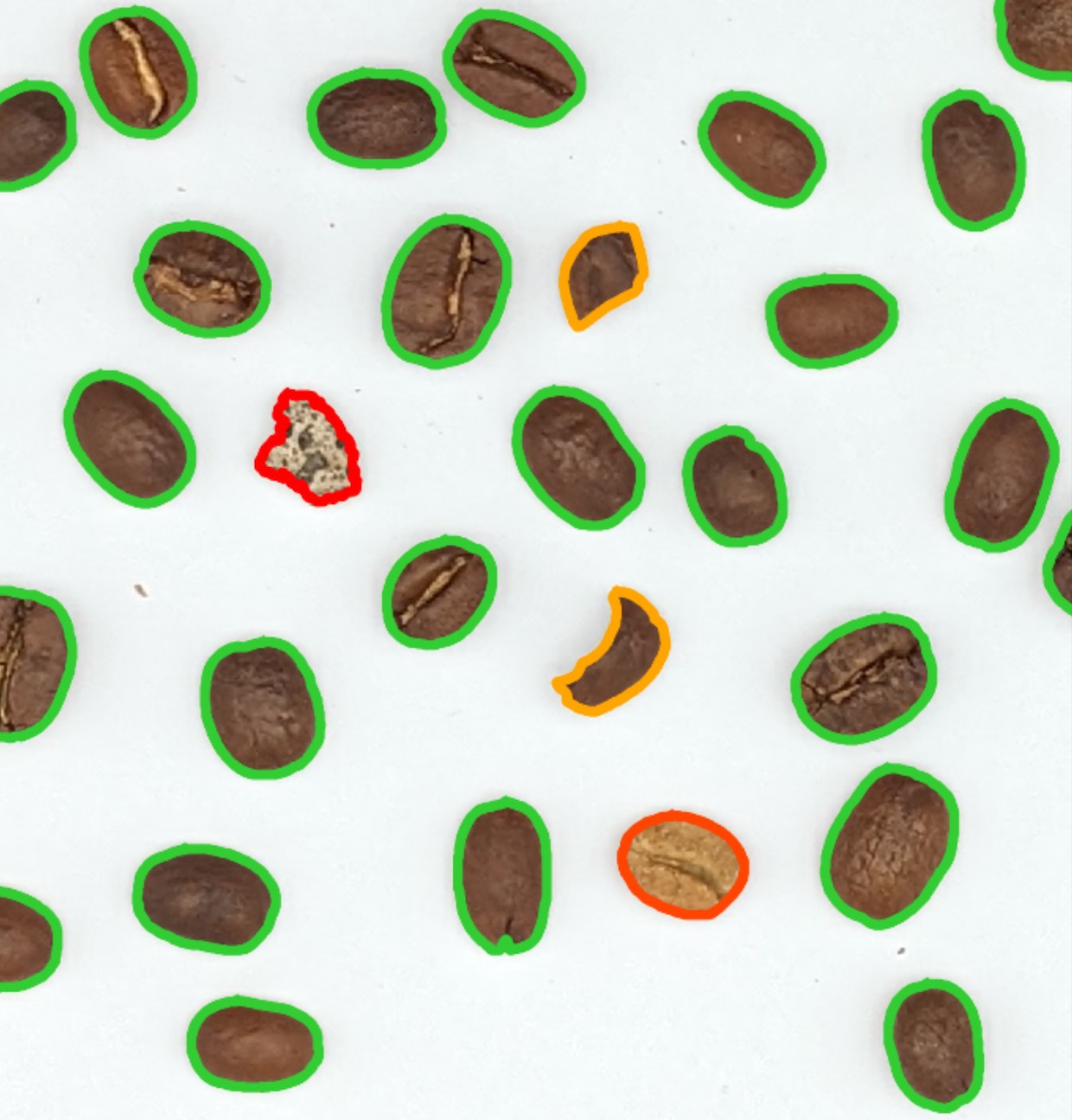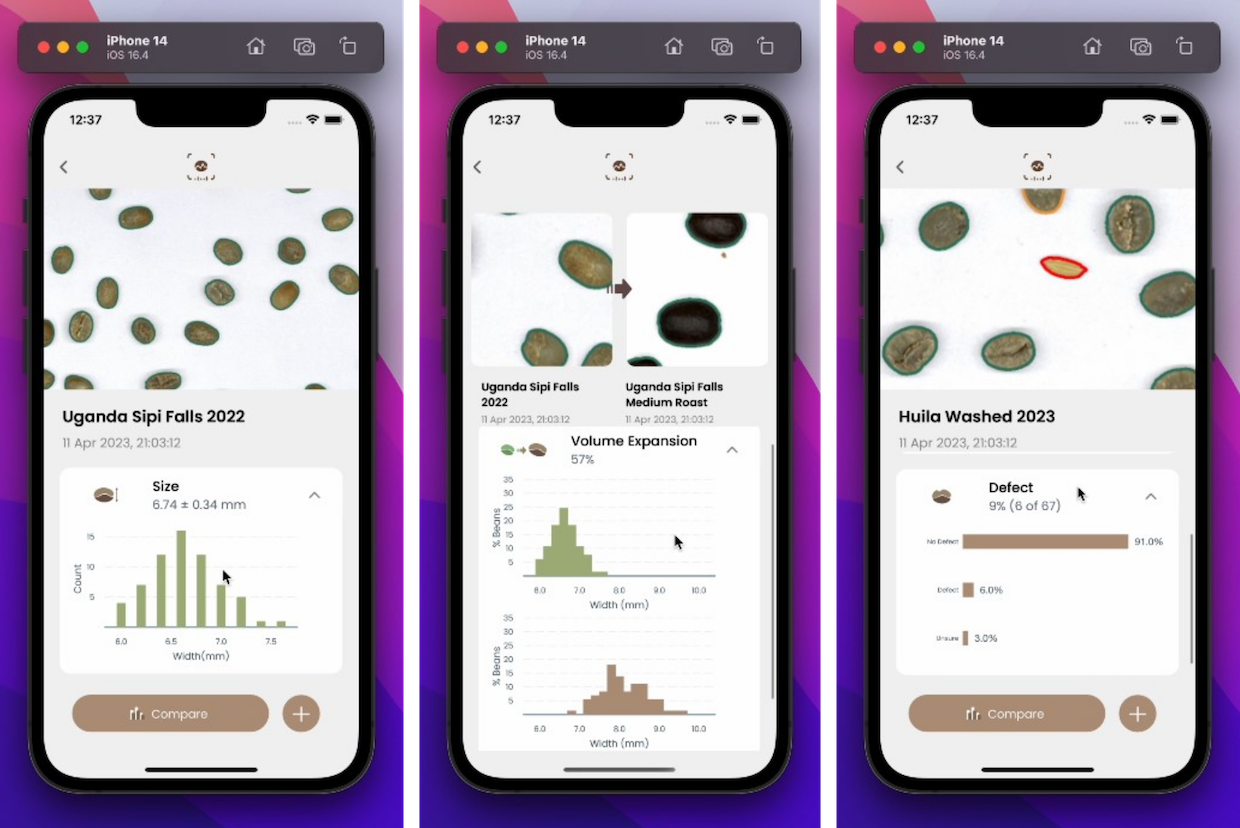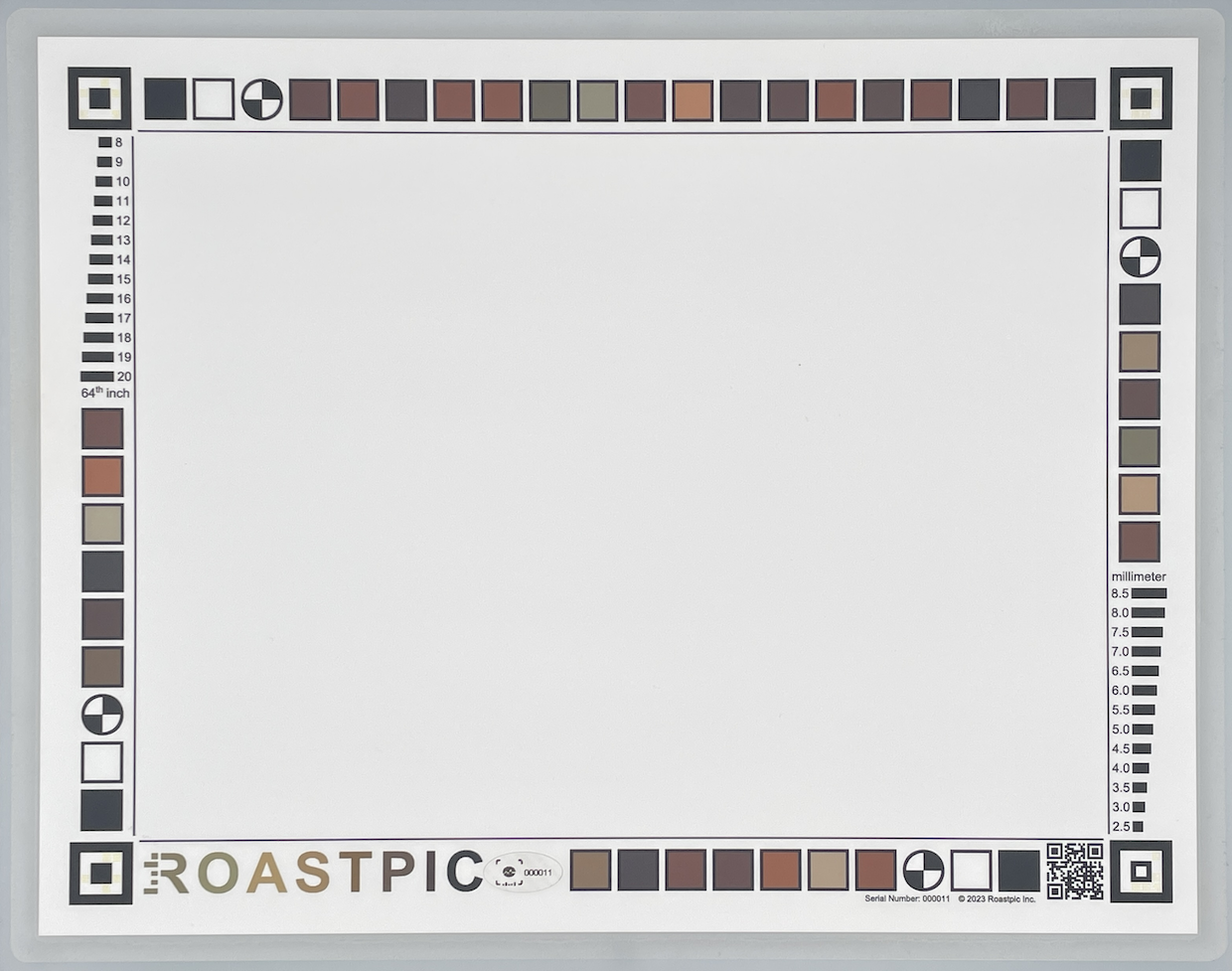
The Roastpic coffee quality control analyzer and app. All images courtesy of Roastpic.
Scientists at the UC Davis Coffee Center have teamed up with Probat subsidiary Fabscale to launch Roastpic, a new app-based image analysis tool for coffee quality control.
Launching as a free download on April 12 in conjunction with the 2024 SCA Expo, Roastpic is designed to give anyone with a smartphone actionable insights into the quality and consistency of green, roasted and ground coffee samples.
Developed by certified Q graders and computer science students at UC Davis, subscription-based Roastpic will launch with free plans plus paid plans starting at $19 per month.

An example showing defects.
“Quality control needs to be done at so many steps along the coffee supply chain, and the current methods are cumbersome and costly,” William Ristenpart, CEO of Roastpic and founding director of the UC Davis Coffee Center, told DCN. “Half of specialty coffee roasters don’t do quantitative color analysis because it’s so expensive.”
The Roastpic system includes a printed diagram called the Roastpic Photosheet. Users take a photo of samples placed on the sheet. The app then provides data on color, size and defect count, while offering summaries and graphs for an instant report.
“It takes about 20 minutes to identify defects in each batch of green coffee,” Ristenpart said of existing traditional QC methods. “With Roastpic and its built-in machine learning algorithms, you get so much data from just one photo.”
Roastpic started as a project in 2022, lead by software engineer Zhuoheng (Andy) Li, currently a senior undergraduate in computer science at UC Davis, and Roastpic Chief Technical Officer Xiao (Harold) Liu, a PhD candidate in computer science.

Fabscale, a subsidiary of German roasting equipment manufacturer Probat, emerged in 2019 as a collaboration with coffee business solutions provider Cropster. The software company focuses on managing and collating the data of the entire coffee roasting production process.
Fabscale will be administering the top tier of Roastpic subscription services, called Roastpic Professional, geared towards larger roasting companies. It involves the built-in camera of an industrial multi-user photo station called the Coffee Vision System. Pricing for the Professional tier varies depending scale.
Roastpic Premium is the medium tier, currently offered at $19 per month. The plan gives users access to a premium printed Roastpic Photosheet, while providing data storage of up to 250 samples per month.
The Roastpic Free tier requires users to print their own Photosheet, while offering data storage capacity of 25 samples per month. Due to variances in color accuracy between printers, the self-printed Photosheet cannot be used for color or defect analysis, but it can be used for size analysis.
“For color data you will need a Premium subscription,” Ristenpart said. “Defect detection relies heavily on color, so we need high-quality color information to classify the beans accurately. We will have a lower price beta test subscription for our product launch on April 12, so we encourage people to sign up right away.”

The Roastpic Photosheet. (Note: this image is for descriptive purposes to accompany this story. It is not intended to be downloaded or used with Roastpic.)
Ristenpart said the capabilities of Roastpic will also continue to evolve and improve over time.
“Right now, the app uses what we’re calling first generation defect classification,” said Ristenpart. “We’re continuing to develop our AI for even more sophisticated defect detection, so we are excited to plan a release of our ‘Next Gen’ defect detection in the near future.”
Roastpic will be presented in public for the first time at the Probat booth at the SCA Expo in Chicago, taking place April 12-14. Find DCN’s complete 2024 SCA Expo coverage here.
Comments? Questions? News to share? Contact DCN’s editors here.
Howard Bryman
Howard Bryman is the associate editor of Daily Coffee News by Roast Magazine. He is based in Portland, Oregon.






Comment